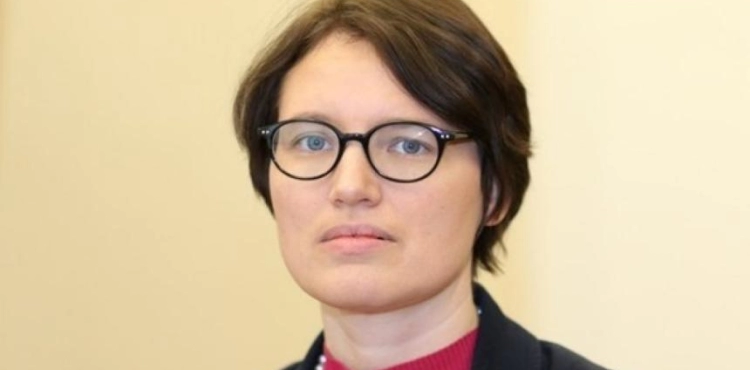Alison King, a spokeswoman for the British government in the Middle East and North Africa, affirmed her country´s commitment to the vision of a two-state solution, and that Jerusalem is the joint capital of Israel and Palestine, during an interview with Jerusalem on the sidelines of her visit to the territories. Palestinian Authority.
It welcomed the President´s call for general elections, called for reconciliation among the Palestinians, and expressed her country´s concern over continued settlement activity in the occupied Palestinian territories.
`` My visit was aimed at hearing from the Palestinian people about the difficulties and challenges they face every day, and British assistance in preserving the Palestinian heritage, ´´ King said.``I visited south of Hebron and saw an important project that prepares young people to gather oral history for other generations and preserve Palestinian traditions and history.
She added that the second goal of her visit was to "reaffirm the British position towards a two-state solution based on the 1967 borders, and that Jerusalem is the joint capital of the Palestinian and Israeli states."
The British spokeswoman welcomed President Mahmoud Abbas´s call for general elections. “We encourage the promotion of Palestinian democracy and renewal in Palestinian democratic institutions, as well as the importance of reconciliation among Palestinians, but democracy is not limited to elections, but also compliance with international human rights and freedom of expression standards,” she said. The promotion of democratic practices is also very important, as well as elections and reconciliation.
She reiterated her country´s rejection of the annexation of the Jordan Valley to Israel. She said that during her current visit she visited the Jordan Valley. The British government´s position is very clear. It opposes any illegal and illegal annexation outside the framework of negotiations towards a two-state solution. We issued a clear statement with our European friends last month. The possibility of Israel annexing the Jordan Valley, which applies to any part of the territories of the Occupied Palestinian Authority
She pointed out that Britain is committed to continuing its relations with the Palestinian Authority and UNRWA, saying that her country has provided support in recent years, and doubled its support this year, especially to UNRWA, saying that "the Authority is a key partner, and we want to be strong able to meet the requirements of the Palestinian people and provide basic services UNRWA also plays a role in the service of Palestine refugees in the Middle East and is also a key partner in the current situation.
She expressed her government´s concern over continued settlement activity in the Occupied Palestinian Territories, as well as the demolition of Palestinian homes.He said she saw a demolition in Jabal Mukaber.We are deeply concerned about the current increase in these operations, and clearly oppose them, making it difficult for the peace process.
She pointed out that "in the absence of the process of direct negotiations between the Palestinian and Israeli parties to work to maintain the possibility of implementing the two-state solution through a lot of diplomatic efforts, and also maintain financial and moral support in the defense of the rights of the Palestinians."
As for her country´s position on the deal of the century, the British spokeswoman said: so far she has not published its details, and we can not predict its terms, as we do not know the timetable for publication, and we believe that it will be published only after the formation of the new Israeli government, and I am not going to defend the American position, we do not We share the American position, and we will not move our embassy to Jerusalem, which should be the common capital of the two countries.
On the most important projects supported by Britain in Palestine, she said: There are a lot of projects implemented by Britain here, so we must see a strong Palestinian economy, and these projects would contribute to the development of the Palestinian economy, and we see that there are many opportunities to develop trade and promote between Yesterday, I saw a salt factory in the Dead Sea, and we hope that it will soon export to Britain.
She pointed out that her government provides a lot of scholarships for future students through the Chevening program. We believe that education is essential in building a viable and sovereign state.
On calls for Britain to apologize for the Balfour Declaration, the spokeswoman said: "We recognize that everyone opposes the Balfour Declaration, but it is a historical fact.
On Britain´s decision to leave the European Union (Brexit), she said: "Whatever the fate of this agreement, it will not affect our trade relations with the Palestinian people."
She expressed her satisfaction with the meetings she had with representatives of the Palestinian society, including institutions, youth and young women. She said that they have the abilities and skills that give hope to the Palestinians. Now that I have learned Arabic, communication with the Palestinians is easy.
Alison King began her relationship with Arabic at Al Bureij refugee camp in Gaza. She was a student at Oxford University when she spent a summer vacation in the camp and taught English as a volunteer. She then studied Arabic for two years at Columbia University, the British Council in Damascus and her Arabic practices during her diplomatic career in Khartoum.












